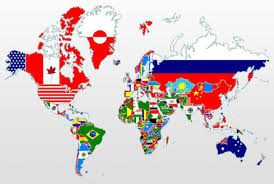记忆方法
将“nation”分解为“nat”和“ion”,想象一个“nat”(一个国家符号的缩写)组成一个“ion”(像链条一样将人们联系在一起),从而形成“nation”,代表一个由共同文化和利益联系在一起的民族或国家。
以上内容由AI生成, 仅供参考和借鉴
中文词源
nation 国家,民族
来自native,出生的,本土的,引申词义国家,民族。
英语词源
- nation
-
nation: [13] Etymologically a nation is a ‘breed’ or ‘stock’. It is one of a wide range of English words that go back ultimately to Latin nāscī ‘be born’, and its immediate source is the derived noun nātiō. This literally meant ‘that which has been born’, a ‘breed’, but was soon used by extension for a ‘species’ or ‘race’, and then by further narrowing down for a ‘race of people, nation’.
The notion of ‘common ancestry’ underlying the term survived into English, but over the centuries has gradually been overtaken by the political concept of an organized territorial unit. The derivative nationality dates from the 17th century.
=> native - nation (n.)
- c. 1300, from Old French nacion "birth, rank; descendants, relatives; country, homeland" (12c.) and directly from Latin nationem (nominative natio) "birth, origin; breed, stock, kind, species; race of people, tribe," literally "that which has been born," from natus, past participle of nasci "be born" (Old Latin gnasci; see genus). Political sense has gradually predominated, but earliest English examples inclined toward the racial meaning "large group of people with common ancestry." Older sense preserved in application to North American Indian peoples (1640s). Nation-building first attested 1907 (implied in nation-builder).
权威例句
- 1. Albania is a small nation state of around 3 million people.
- 阿尔巴尼亚是一个大约有300万人口的单一民族独立国家。
- 2. Young people came from the four corners of the nation.
- 全国各地的年轻人都来到这里。
- 3. How much can the President relax his grip over the nation?
- 总统可以对国家的控制放松到什么样的程度?
- 4. The nation's unemployment rate has been climbing steadily since last June.
- 自去年6月以来,该国的失业率一直在不断上升。
- 5. The crew are of different nation-alities and have no common language.
- 船员来自不同国家,语言不通。

